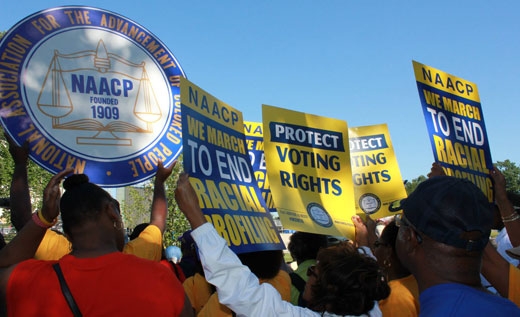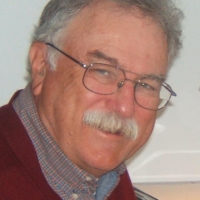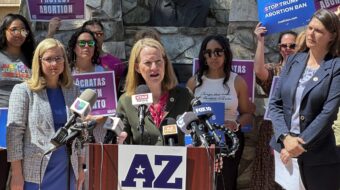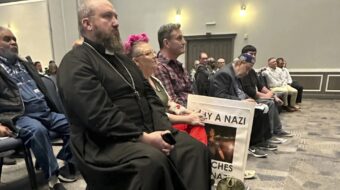
WASHINGTON – “I gave a little blood on that bridge in Selma, Alabama, for the right to vote and I’m not going to stand by and allow the Supreme Court to take the right to vote away from us.”
With those ringing words, Rep. John Lewis, D-Ga., drew a roaring cheer from the enormous crowd at the Lincoln Memorial on Saturday. The people assembled on the National Mall, on a sunny, breezy day, were celebrating the 50th anniversary of the Aug. 28, 1963, March on Washington for Jobs and Freedom led by Dr. Martin Luther King Jr.
Lewis, then a leader of the Student Nonviolent Coordinating Committee, was the youngest speaker at the 1963 march and rally. Later, Lewis was beaten bloody by Alabama state troopers while leading peaceful voting rights marchers in Selma. That brutal assault – and the mass outrage that followed – was key to the passage of the Voting Rights Act in 1965.
But the ultra-right majority of the Supreme Court recently gutted a key provision of the law. “The vote is precious,” Lewis said on Saturday. “It is the most powerful non-violent tool we have in a democratic society and we’ve got to use it … We must say to Congress: Fix the Voting Rights Act.”
Lewis also called on Congress to pass comprehensive immigration reform. “It doesn’t make sense that millions of our people are living in the shadows,” he said. “Bring them out into the light. Set them on the path to citizenship.”
More than 30,000 members of the NAACP were in the crowd, many holding signs that proclaimed, “Protect the right to vote.” Others held signs that said, “Comprensive immigration reform NOW.”
Dr. Roslyn Brock, NAACP national president, denounced the “racist onslaught on our right to vote.” She added, “Our challenge today, my friends, is to vote in all elections, especially non-presidential elections.”
Referring to the 2010 off-year elections in which tea party Republicans gained control of the House of Representatives, she said “the consequences have been devastating” when the progressive majority stays home on Election Day.
Rep. Alicia Reece, who represents Cincinnati in the Ohio Legislature, called for a “Voters’ Bill of Rights,” a constitutional amendment to be put on the ballot across the nation beginning with Ohio.
Wade Henderson, president of the Leadership Conference on Civil and Human Rights, told the People’s World that Reps. John Conyers, D-Mich., and Jim Sensenbrenner, R-Wis., are drafting a bill to restore the Voting Rights Act. The measure, not yet introduced, will include restoration of the section struck down by the Supreme Court, Henderson said. He predicted that Sensenbrenner will persuade enough Republicans to support the bill that it will pass.
The first march in 1963 had a laser focus on ending racist segregation. By contrast, the rally this Saturday was far more diverse in both composition and the vital issues the marchers raised. There were many more women participating and more blasts against the Republican right for attacking women’s rights. Thousands carried signs demanding “Justice for Trayvon Martin,” the unarmed 17-year-old Black youth shot to death in Florida by George Zimmerman, who was acquitted of the slaying.
Sybrina Fulton, Trayvon Martin’s mother, told the crowd that the slain youth “was not just my son. He’s all of our sons and we have to fight for our children.”
Dan Gross, speaking for the Brady Campaign to Prevent Gun Violence denounced the “cowardly Congress” that ignores the 90 gun fatalities each day in blocking legislation to end the firearm massacres. “We are here today because Trayvon Martin is dead,” Gross said. “A young Black male is 17 times more likely to die in a gun homicide … and we are here to say ‘My voice matters.”
Terry O’Neill, president of the National Organization for Women, said the Republican right is waging a “war on women” even though the women’s equality movement has “won the war of ideas.” She listed some of the demands of that movement: “union jobs at fair pay,” equal pay for work of equal value, no cuts in Social Security, Medicare and Medicaid. She added, “We demand a constitutional amendment, a guarantee of the right to vote. Women will never go back!”
Growing economic inequality with millions unemployed or falling into the ranks of the working poor brought thousands of union members to the march. Bob King, president of the United Auto Workers, told the People’s World his union filled 105 buses from across the nation, in keeping with its history: the UAW was a sponsor of the 1963 march.
“We’re here to honor Dr. King and to commit ourselves to action to fulfill the dream of social justice for everyone,” King said. “That includes the right of workers to organize and bargain collectively, equal rights for women, full funding of public education, a clear path to citizenship for all the millions who are the children of God in our country.”
The Rev. Al Sharpton, who co-organized the march with Martin Luther King III, gave a fiery keynote address, calling for an all out mobilization on three issues: voting rights, jobs, gun violence. He urged building a united movement and to put the heat on the “one percent” and banks when it comes to economic justice.
Drawing on King’s 1963 speech, Sharpton said the check marked “insufficient funds” was redeposited but came back marked “stop payment.”
“They had the money to bail out banks. They had the money to bail out major corporations. They had the money to give tax benefits to the rich. They had the money for the 1 percent,” Sharpton said.
“But when it comes to Head Start, when it comes to municipal workers, when it comes to teachers, they stopped the check,” he said. “We want to make you make the check good, or we’re going to close down the bank.”
The St. Louis chapter of the Coalition of Black Trade Unionists brought a busload. Lew Moye, president of the chapter, told People’s World, “Many of the same problems we faced in 1963 we face today. We want to send a message to our congressional representatives and to our president and his administration that those issues remain our highest priorities. They need to address our priorities.”
Ben DeGuzman was leading a contingent of the National Council of Asian Pacific Americans. “In many ways our struggles are the same,” he said as he marched. “We’re fighting for jobs, peace and freedom the same as all the other people here. Immigration is an issue of particular interest we work on. Over 60 percent of Asian Americans are foreign born and 11 percent of the undocumented are Asians so it is an issue that affects us all. We fight hard for citizenship. We fight hard to claim our place in the country.”
Jahquille Ross and Angellica Perkins, students at Tuskegee University, rode one of the NAACP buses from Alabama. “I think it’s important for young people to be here,” said Ross, a senior who is majoring in elementary education. “We are not only remembering the past but we are moving toward our future and our future is not clear. We need more young people to step up and lead.”
Perkins said she is from Selma and still has family living there. “My family has passed the torch from generation to generation in all we have gained in the civil rights movement. When we celebrate those accomplishments, we are defending them. We are showing the unity that is necessary to defend those gains.”
After the rally ended, participants marched to the recently completed memorial to Dr. Martin Luther King, Jr. overlooking the Tidal Basin. It was a moving conclusion to another historic march on Washington.
Photo: A scene at the 50th Anniversary March on Washington, Aug. 24, 2013. NAACP Facebook page.












Comments